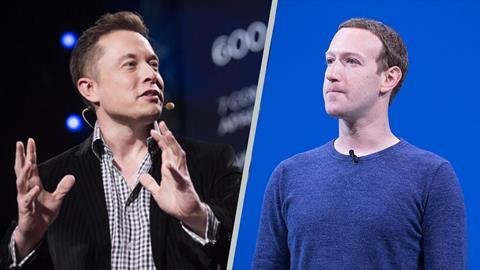As the rumours of a physical fight between Elon Musk and Mark Zuckerberg persist, Sam Brown reflects of a better model of leadership that doesn’t involve preening and posturing like schoolboys in the yard

In case you’re lucky enough to have missed it, the ongoing feud between Elon Musk, owner of X (or Twitter, as it was formerly known), and Mark Zuckerberg, CEO of Meta (or Facebook, for all intents and purposes) has, in recent weeks, been threatening to spill off the internet and into the actual, physical arena.
Both individuals have reportedly been in contact with Dana White, head of Ultimate Fighting Championship (UFC) with rumours even circulating that the two men would face off in a livestreamed battle from Rome’s Colosseum. More recently, however, it seems that the pair have been unable to agree on where, when, and how the contest should take place.
Something to prove
While fisticuffs may be on hold for now, the quarrel bears the unmistakable mark of preposterousness. Two of the world’s richest men, performing for their sycophantic disciples, resorting to physical contest to prove…something. It contributes to a worrying trend in our public life towards entertainment over competence – the sense that leadership is sustained by sheer force of character rather than diligence, good judgment or even selflessness.
Instead of preening for the cameras, an attempt at humility and service might better impact the world
While these antics may seem like something we left behind on the playground in our youth, they reveal something of our psyche and what it is we seek from our leaders. Musk and Zuckerberg have found success in business and, with their accumulated material wealth, have also generated admiring crowds. Our culture perceives them to possess shrewd judgement and impressive vision. In that sense, the qualities people want in their leaders seem to be the same as they ever were.
For Musk and Zuckerberg however, it’s apparent that there is something else nagging at them. It’s not enough to own and run vast social media networks – they also seem to need to establish themselves as some sort of physically superior, alpha-male type, purely to enthuse their followers.
A different way
Exhibitionism is not something Jesus is concerned with.
When faced with Caiaphas at his show-down trial before his crucifixion, Jesus cuts a different figure than that of Elon Musk or Mark Zuckerberg. Initially, he keeps silent. And finally, seals his own death by using Caiphas’ own words against him, declaring that he was indeed the Son of God. No Gospel records Jesus as challenging the high priest to a cage fight.
It’s not that this debate is beneath Jesus – it’s more that he has nothing to prove by publicly embarrassing or condemning Caiaphas. This is a man with full perspective of who he is, and what his purpose is.
Musk and Zuckerberg’s proposed fight is a timely reminder of what we see in the way Jesus leads. Not with reckless ambition, ceaseless self-promotion or mindless violence. Rather, in the person of Jesus Christ, we find a radical humility. After healing a man of his leprosy, Jesus retreats from the crowds who have heard of his miracles (Luke 5:12–16). He isn’t interested in recognition. If anything, he actively seeks to avoid it. Instead, Jesus presents himself as someone who is interested only in service.
No Gospel records Jesus as challenging the high priest to a cage fight
It’s a model our leaders – both in business and politics – would do well to study. Between them, Musk and Zuckerberg are responsible for thousands of livelihoods, and the management of what has become essential digital infrastructure. Instead of preening for the cameras, an attempt at humility and service might better impact the world over which they have so much influence.
Living wisely in today’s culture means we have a certain understanding of what it means to admire a leader. Juvenile physical competition and shameless self-promotion are out, humble service and quiet resolve are in. In all matters, may we continue to choose the way of Christ – including our expectations of leaders.





































1 Reader's comment